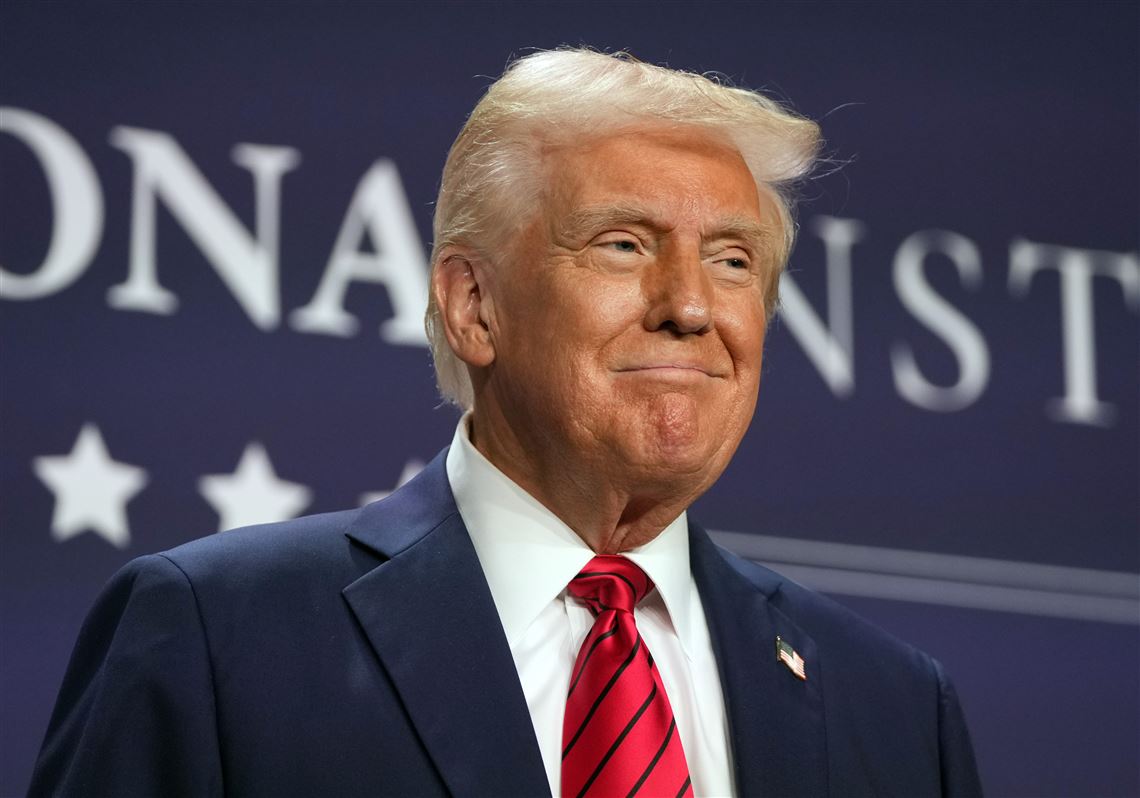Global trade faces new threats. China tariffs could ignite a crisis.
Recent changes in trade policies have sparked global concerns. The impact of tariffs on Chinese goods might be bigger than expected. Businesses worldwide are watching closely. They fear a ripple effect on economies. Could these tariffs lead to a global trade crisis?
In this blog, we explore the potential outcomes. We look at how tariffs can shake the market. We also consider possible responses from other countries. Stay with us as we dive into this pressing issue. Understanding these changes can help businesses prepare. The stakes are high, and the world is watching.
Introduction To Global Trade Crisis
Global trade has always been a complex and dynamic arena. Recently, however, there are signs of a brewing crisis that could disrupt markets worldwide. The introduction of tariffs, especially those involving China, might be the spark that ignites this turmoil.
Current Trade Landscape
Today’s trade environment is a web of interdependencies. Countries rely on each other for goods, services, and raw materials. This interconnectedness means that a disturbance in one region can ripple across the globe.
Take the semiconductor industry, for example. A significant portion of these chips is manufactured in Asia, particularly in China. Any tariffs on these critical components could affect tech industries worldwide, from smartphones to automobiles.
As you can see, no country is an island in the world of trade. Each policy change or economic shift has far-reaching consequences.
Impact Of Tariffs
Tariffs can seem like a simple solution to complex trade issues. They aim to protect domestic industries by making imported goods more expensive. However, the real-world impact is often far more complicated.
Consider the recent tariffs imposed by the US on Chinese goods. While the goal was to boost American manufacturing, the result was higher costs for businesses and consumers. Many companies had to either absorb these costs or pass them on, leading to increased prices for everyday items.
Moreover, retaliatory tariffs from China have hurt American exporters. Farmers, for instance, have seen reduced demand for their products, affecting their livelihoods.
So, how do these tariffs impact you? Higher prices and disrupted supply chains can affect everything from your grocery bill to the availability of the latest gadgets.
As we navigate this uncertain trade landscape, it’s crucial to stay informed and prepared. What steps can you take to mitigate the impact of these global shifts on your life and business?
China’s Economic Influence
China’s economic influence stretches across the globe. As the world’s second-largest economy, it plays a crucial role in international trade. Any changes in China’s economic policies can have significant global impacts. The recent tariffs imposed by the US may just be the spark that ignites a global trade crisis. Let’s explore how China’s economic influence affects global supply chains and trade partnerships.
Global Supply Chains
China is a key player in global supply chains. Many industries rely on Chinese manufacturing. Electronics, textiles, and machinery are just a few examples. Disruptions in China’s economy can cause supply chain issues worldwide. Tariffs can increase production costs. This can lead to higher prices for consumers.
Companies might need to find new suppliers. This can be a slow and costly process. Small businesses can be hit the hardest. They may struggle to absorb the increased costs. This can lead to job losses and economic downturns in other countries.
Trade Partnerships
China has trade partnerships with many countries. These partnerships are crucial for economic growth. Tariffs can strain these relationships. Countries may be forced to choose sides. This can lead to geopolitical tensions.
Some nations may seek new trade partners. This can shift global trade patterns. Long-standing trade agreements may be renegotiated or abandoned. The ripple effects can be felt worldwide.
China’s economic influence is undeniable. The potential global trade crisis is a complex issue. The impact of tariffs on supply chains and trade partnerships is profound. The world will be watching closely as these events unfold.
Recent Tariff Impositions
Recent tariff impositions are sparking concerns about a global trade crisis. Tensions between the U.S. and China are rising. New tariffs could impact economies around the world. Understanding these tariffs is crucial.
U.s. And China Relations
The relationship between the U.S. and China is complex. Trade has always been a sensitive issue. Recent tariffs are making it more strained. The U.S. aims to protect its industries. China feels the pressure to respond.
Both countries have imposed tariffs on each other. This tit-for-tat approach is escalating. It affects various sectors like technology and agriculture. Businesses are feeling the pinch.
Key Tariff Policies
The U.S. has introduced several tariffs on Chinese goods. These tariffs target electronics, steel, and more. The goal is to reduce dependence on Chinese imports. China has retaliated with tariffs on American products. These include soybeans, cars, and other goods.
The impact is significant. Prices for these goods are rising. Consumers and businesses are facing higher costs. Trade policies are shifting rapidly. Staying informed is essential.
Immediate Repercussions
The global trade landscape faces turbulence. The new tariffs on Chinese goods could spark significant changes. These tariffs might lead to immediate repercussions. Businesses, consumers, and markets will all feel the impact. This section will explore those immediate effects, focusing on market reactions and industry responses.
Market Reactions
The stock markets react quickly to news. The announcement of tariffs caused immediate volatility. Investors fear higher costs and reduced profits. Stocks in affected sectors dropped. Currency markets also responded. The value of the yuan fell against the dollar. This shift could impact global trade flows. The uncertainty has led to cautious trading. Many investors are waiting for more news.
Industry Responses
Industries are assessing the impact of tariffs. Manufacturing firms expect higher costs. Some may pass these costs to consumers. Others might absorb them, reducing profits. Retailers worry about supply chain disruptions. They might need to find new suppliers. Tech companies are concerned about component costs. This could delay product launches. Agriculture could suffer due to export restrictions. Farmers face challenges in selling crops. The auto industry expects higher prices for parts. This might increase car prices for buyers. Every sector is preparing for change.
Long-term Effects
China tariffs might trigger a global trade crisis. Long-term effects may include disrupted supply chains and increased costs for consumers. Economic instability could follow.
### Long-term Effects The recent tariffs on China could spark significant long-term effects on global trade. While the immediate changes may seem manageable, the long-term consequences can be far-reaching. Let’s delve into the potential outcomes and what they mean for the global economy.Economic Slowdown
An economic slowdown could be one of the most significant long-term effects of these tariffs. As tariffs increase the cost of goods, both businesses and consumers feel the pinch. This can reduce spending and investment, leading to slower economic growth. Imagine walking into your favorite electronics store and finding that the prices of gadgets have doubled. Would you buy less? Probably. This reduced consumer spending can ripple through the economy, affecting everything from job creation to stock market performance.Shifts In Trade Dynamics
Tariffs can also lead to shifts in trade dynamics. Countries may look for new trade partners to avoid high tariffs. This can alter existing trade routes and relationships. For instance, if you’re a business owner importing goods from China, you might seek suppliers in other countries like Vietnam or India. While this may initially seem like a good strategy, it can lead to higher costs and logistical challenges. Moreover, these shifts can create instability in global markets. Traditional trade alliances may weaken, and new, less reliable ones may form. This can lead to a more unpredictable trading environment, making it harder for businesses to plan for the future. In conclusion, the long-term effects of China tariffs could be more severe than we initially think. They have the potential to slow down economies and drastically change trade dynamics. How prepared are you for these changes? Are you considering alternative strategies to navigate this new landscape? Your proactive steps today could safeguard your business tomorrow.
Credit: www.reuters.com
Global Trade Alliances
The global trade landscape is on the brink of a significant shift. With new tariffs on Chinese goods, countries are reevaluating their trade alliances. This could lead to an era of unprecedented change in how nations collaborate economically.
Imagine if your favorite local coffee shop suddenly increased its prices. You might consider finding another place to get your morning fix. Similarly, countries are now exploring new trade partners to avoid the economic strain caused by tariffs.
New Trade Agreements
Countries are actively seeking new trade agreements to mitigate the impact of tariffs. These agreements can open up new markets and opportunities.
For example, the European Union has been working on deals with countries in Asia and Latin America. This diversification helps reduce dependency on any single nation.
Such agreements not only boost economic growth but also strengthen diplomatic ties. They create a safety net, ensuring that no single tariff or trade policy can cripple an economy.
Potential Trade Wars
However, new trade agreements come with their own set of challenges. They can spark potential trade wars.
When one country imposes tariffs, others might retaliate. This tit-for-tat escalation can lead to a full-blown trade war, affecting global economies.
You might recall the U.S.-China trade war a few years ago. It led to higher prices for consumers and disrupted supply chains worldwide. Nobody wants to see a repeat of that scenario.
So, what’s the solution? Nations must find a balance between protecting their interests and fostering global cooperation. It’s a delicate dance that requires careful negotiation and strategic planning.
What do you think? Are new trade agreements worth the risk of potential trade wars? How do you see this impacting your daily life? Share your thoughts in the comments below!
Mitigation Strategies
China’s tariffs on global trade might ignite a crisis. Mitigation strategies are crucial to protect economies and maintain stability. Businesses should adapt quickly to minimize impact.
When facing a potential global trade crisis sparked by China tariffs, businesses and governments need effective strategies to mitigate the impact. These strategies can help cushion the blow and ensure stability in the economy. Let’s dive into some practical approaches.Government Interventions
Governments can play a critical role in mitigating the effects of trade crises. One effective intervention is to reduce tariffs on other trading partners. This can open up new avenues for trade and lessen the dependency on China. Subsidies for affected industries can also provide relief. Governments could offer financial support to businesses struggling due to the tariffs, helping them stay afloat during tough times. Another approach is negotiating new trade deals. By forming new alliances, governments can create more opportunities for their businesses. This can help balance out the losses from the tariffs on China.Business Adaptations
Businesses must also adapt swiftly to survive a trade crisis. Diversifying supply chains is crucial. Relying on multiple countries for raw materials can reduce the risk posed by tariffs on a single nation. Investing in technology can also be a game-changer. Automation and digital tools can streamline operations, cutting costs and boosting efficiency. This can help businesses stay competitive despite higher tariff-related expenses. Exploring new markets is another key strategy. Companies should look beyond traditional markets to expand their customer base. This can help offset losses in regions affected by the trade crisis. Have you ever had to adapt quickly to a sudden change? Just like in personal experiences, flexibility and quick thinking are vital. In the face of a global trade crisis, how will you prepare your business or community?
Credit: www.post-gazette.com
Future Outlook
China tariffs could ignite a global trade crisis. Economies worldwide might face disruptions and challenges. The future looks uncertain for international commerce.
## Future Outlook The global trade landscape is on the brink of significant changes. With the ongoing trade tensions, particularly the tariffs imposed by China, many are concerned about what lies ahead. Let’s delve into what the future might hold. ### Predictions for Global Trade Many experts predict a shift in global trade dynamics. Countries may look to diversify their trading partners to reduce dependency on any single nation. This could lead to new alliances and trading blocs. You might see an increase in bilateral agreements. Nations will prioritize securing their economic interests. This could mean more intense competition but also new opportunities for growth. Digital trade and e-commerce might take center stage. With the rise of technology, businesses could find new ways to reach global markets, bypassing traditional trade barriers. ### Possible Resolutions Resolving these trade tensions will require diplomacy and cooperation. Countries will need to engage in meaningful dialogue to address underlying issues. This might involve renegotiating tariffs and other trade terms. Governments could invest in domestic industries to reduce vulnerability. By strengthening local production, nations can become more self-reliant. International organizations like the WTO could play a crucial role. They might mediate disputes and help set fair trade standards to ensure stability. What can you do to adapt to these changes? Stay informed and flexible. By understanding the evolving trade landscape, you can seize new opportunities and navigate challenges effectively. In the midst of uncertainty, proactive measures and strategic planning will be key. How will you prepare for the future of global trade?
Credit: www.vox.com
Frequently Asked Questions
What Is The Impact Of China Tariffs?
China tariffs increase costs for businesses and consumers. They disrupt supply chains and can lead to higher prices globally.
How Do Tariffs Affect Global Trade?
Tariffs create trade barriers, leading to reduced international trade. They can cause economic slowdowns and strained trade relationships.
Are China Tariffs Causing A Trade Crisis?
China tariffs contribute to trade tensions. They might spark a larger global trade crisis by disrupting economic stability.
Why Are China Tariffs Significant?
China tariffs affect one of the world’s largest economies. This impacts global markets, trade balances, and international economic policies.
Conclusion
The global trade situation remains uncertain. China tariffs could ignite significant shifts. Businesses must stay alert and adaptive. Monitoring these developments is crucial. Potential changes may impact many sectors. Preparation can mitigate some risks. Trade strategies may need reevaluation. Staying informed helps navigate these challenges.
The future of global trade hangs in balance.


